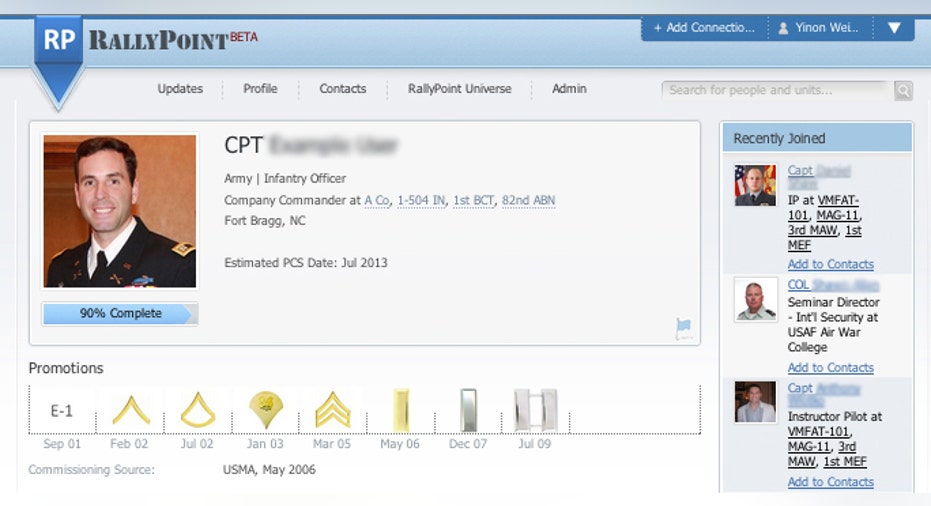RallyPoint Aims to Connect Vets, Service Members with Jobs

After serving in the Army in the same region of Iraq in 2008, Yinon Weiss and Aaron Kletzing reconnected a few years later at Harvard Business School, where Weiss was the co-president of the Veteran’s Club.
“At business school, we were using LinkedIn – it was a hyper-networking environment. We both recognized we had never been exposed to that in the military community,” says Weiss.
It was then Weiss and Kletzing say they recognized a need for a networking site tailored to service members. So, they set out to build one themselves.
Armed with $1.6 million from private angel investors and $100,000 won through the Harvard Business School Business Plan Challenge and MassChallenge, Weiss and Kletzing built RallyPoint, a “LinkedIn for the military,” which launched in November.
On Memorial Day, RallyPoint is launching a new tool, which the company says will help connect vets to job opportunities and create networking opportunities for veterans with similar military experiences.
Weiss says active service members rarely think about the job application process, because positions are centrally managed by the military.
“There are no job postings, and you never apply for jobs,” says Weiss.
That said, Weiss says there’s a need for more knowledge about positions that may be opening up down the line – especially for those who are toying with the idea of leaving the military.
Weiss says most military positions last for 18-months at a time.
“If you know you’re rotating you’re your job 18 months from now, you can self-report that and query other people like you in the military to see which positions they’re vacating at the same time,” says Weiss. “It gives transparency to the career process within the military.”
Weiss says RallyPoint also allows service members to search by unit, rank and specialization, so they can find people and opportunities well-suited to them.
Translating Military Skills to Private-Sector Jobs
Weiss says veterans transitioning from the military to the private sector have trouble translating esoteric military terms to potential employers, so RallyPoint connects users with other veterans with similar backgrounds now working in the corporate world.
“If you’re a sergeant and you connect with another sergeant [now working in a corporate job], he can help explain to you the application process, help you figure out how to translate your skills and tell you why you might be good at this position,” says Weiss.
Weiss says the veteran-focused tool will first identify members by their private sector jobs, and then at the bottom, will have their military career details. He says this structure provides a helpful research opportunity, as recent veterans can see how different military skills translate into a variety of private sector positions.
There are a number of online resources available for veterans seeking career opportunities, including Military Career Coach, which is an online tool by Accenture and LinkedIn which helps veterans with their resumes and interviewing skills; Military.com, which has a veteran career network; Vets in Tech and Incline, which both help veterans get technology jobs; and Fidelis, which aims to smooth out the military-to-civilian career transition.



















